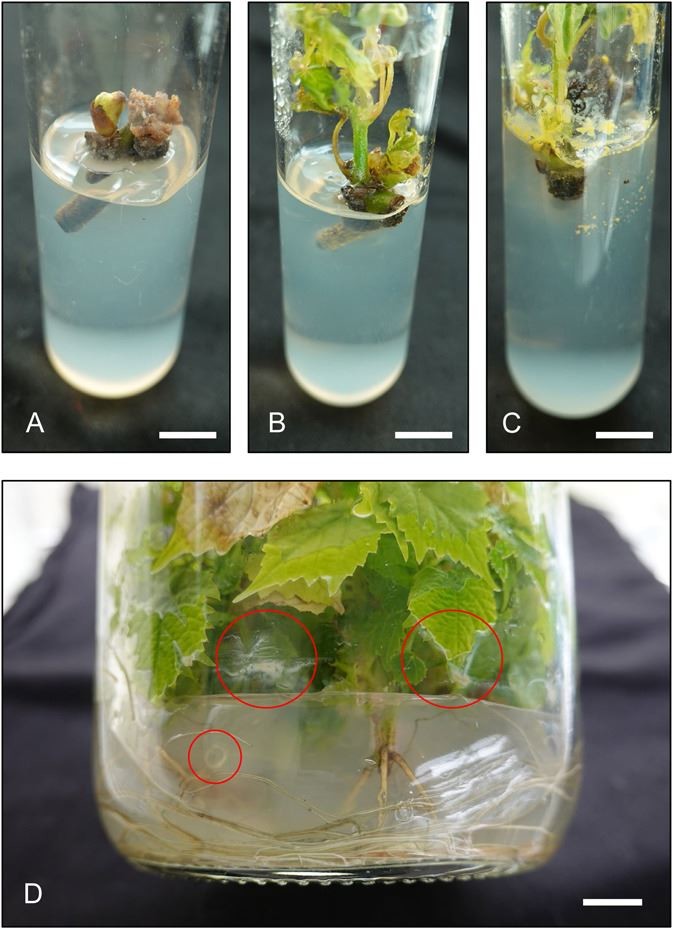Fungal and Bacterial Identification
Plant tissue culture is a biotechnology based on the theory that plant cells are totipotent and is based on the premise of plant cell culture technology. During the tissue culture process, contaminating or threatening organisms often occur. Lifeasible can provide strain identification services for bacteria, fungi, and other contaminating organisms to support the rapid propagation of large quantities of seedlings, variety renewal, virus removal, and virus-free seedling propagation using tissue culture technology.
What is Explant Contamination
Plant tissue culture is the process of using isolated organs of the plant body to induce healing tissues, adventitious shoots, adventitious roots, and finally, complete plants. At the same time, fungal and bacterial contamination are the two primary forms of explant contamination. Among them, bacterial contamination is triggered by various bacteria and endophytes, with a long latent period, which sometimes manifests only after several successions. Fungal contamination is easy to find, mainly triggered by molds and yeasts; rapid contamination is difficult to control once the loss is more significant. Pollution can be brought in by exosomes or caused during the cultivation process. Incomplete sterilization of the culture room, operation contamination, medium autoclave sterilization is not in place, and often in and out of the culture process in the later stage may cause contamination.
 Figure 1. Vitis in vitro cultures established from field plants. (Volk, G. M., et al, 2022)
Figure 1. Vitis in vitro cultures established from field plants. (Volk, G. M., et al, 2022)
What We Offer
Species identification (strain identification) of microorganisms by DNA sequencing is a more advanced identification method than traditional biochemical identification. DNA sequencing does not depend on the characteristics of the strain itself and can be used for all strains. It is faster and more accurate than traditional biochemical identification. We provide strain identification services for bacteria, fungi, and other exosome contaminants through amplifying bacterial 16S rDNA or fungal 18S rDNA, ITS fragments, and then sequencing and comparing with the NCBI database to achieve the purpose of taxonomic identification. You only need to provide the samples to be identified, and we will provide you the test results with comprehensive genus-specific information in the shortest possible time.
- 16S rDNA partial sequence analysis
- 16S rDNA full sequence analysis
- ITS full sequence analysis
- 18S rDNA full sequence analysis
- 26S rDNA D1/D2 region sequence analysis
Sample requirements
Genomic DNA: concentration ≥ 50 ng/μl, total volume ≥ 10 μl, and no significant degradation.
Delivery results
- PCR product electropherogram
- PCR product sequencing results
- Blast results
- Experiment report
Advantages
- Competitively priced.
- High-quality universal primers.
- High identification success rate.
- Long sequencing reads and high sequencing quality.
- Professional technical support.
- Senior project management.
Lifeasible has rich experience in sequencing, with a perfect strain identification process and a standardized experimental process to avoid exogenous contamination to ensure that the experimental results are true and effective. We will help you solve technical and service problems, update your project information, and track your project progress in time. Please feel free to contact us to start your identification project.
Reference
-
Volk, G. M., et al. (2022). "Minimizing the deleterious effects of endophytes in plant shoot tip cryopreservation." Applications in Plant Sciences 10(5): e11489.
You want to sign a confidentiality agreement.
You have a specific plant species for your experimental needs.
You have a reliable and relevant cooperation project to discuss.
You are very interested in our project or have any questions.
You need an updated and detailed quotation.
For research or industrial use.

 Figure 1. Vitis in vitro cultures established from field plants. (Volk, G. M., et al, 2022)
Figure 1. Vitis in vitro cultures established from field plants. (Volk, G. M., et al, 2022)
